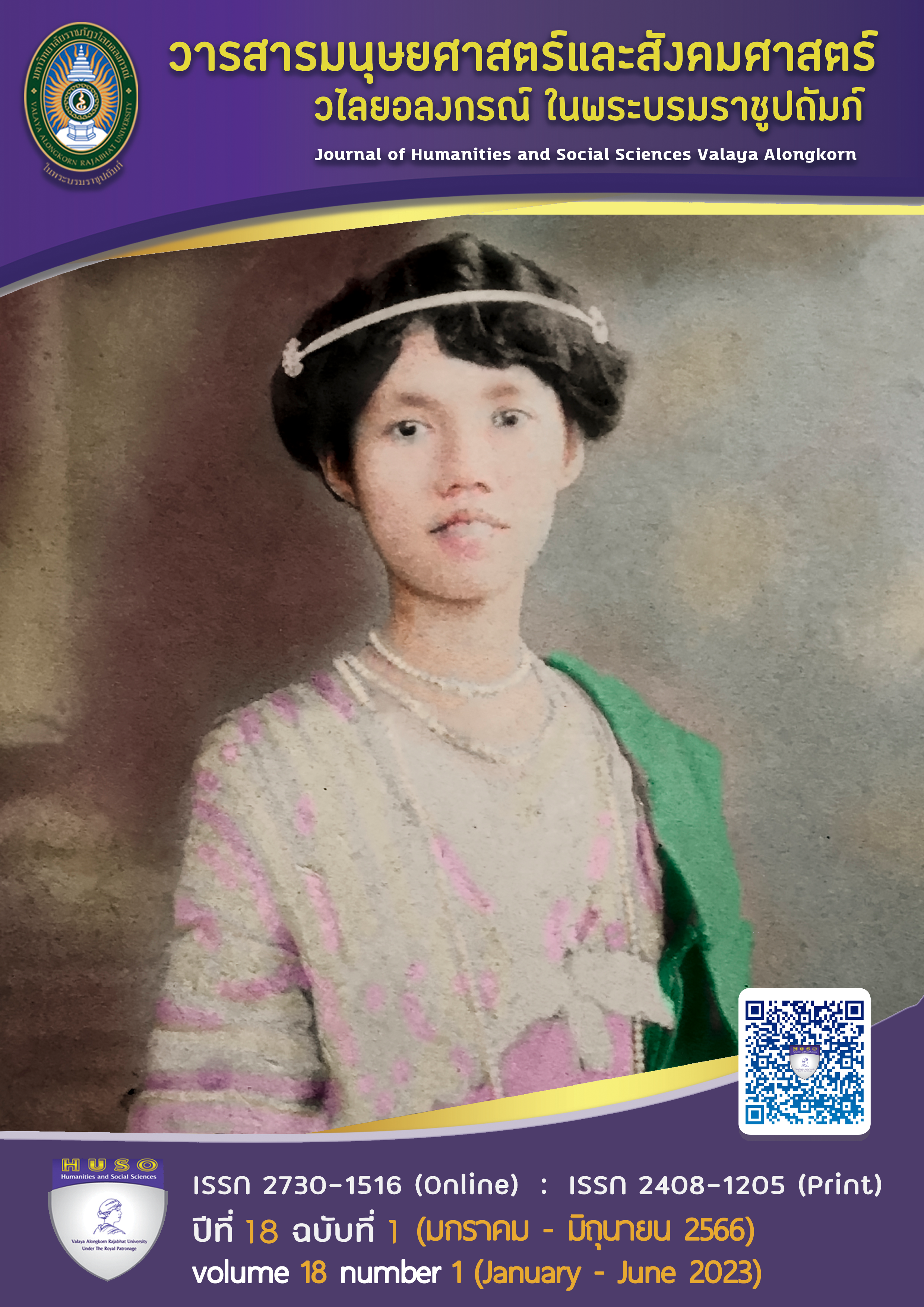DEVELOPMENT OF CAREER PLANNING COURSE BASED ON THE EXPERIENTIAL LEARNING MODE TO CULTIVATE STUDENTS’ WORK SKILL OF ZHOUKOU NORMAL UNIVERSITY
Main Article Content
Abstract
This study aimed to achieve the following objectives: 1) to develop a career planning course based on the experiential learning model for college students, 2) to compare the work skills of students after completing the career planning course with a criterion set at 70%, and 3) to assess students' satisfaction with the career planning course. The sample consisted of a class of 25 students, selected using simple random sampling. The research instruments used included: 1) the six components and lesson plans of the career planning course based on the experiential learning model, 2) a work skills assessment form, and 3) a satisfaction questionnaire. Data analysis included the calculation of mean and standard deviation for the work skills data, with statistical significance set at a .05 level and the criterion set at 70%. One-sample t-tests were used for the analysis. Additionally, the mean and standard deviation of the student satisfaction data were calculated. The results of the study are as follows:
1) The course comprised the principle, objective, content, instructional process, instructional material, and learning assessment, and utilized a "four-step" teaching process.
2) The mean post-test score for teamwork skills after completing the career planning course was 10.08 (SD = 1.80). This score exceeded the 70% criterion with statistical significance at a .05 level (t = 4.66, p = .001). Similarly, the mean post-test score for problem-solving skills after completing the career planning course was 9.48 (SD = 2.16), which also exceeded the 70% criterion with statistical significance at a .05 level (t = 2.50, p = .020). The study demonstrated a trend of increasing mean scores. 3) Comparing the post-course satisfaction scores of the career planning course (mean = 76.52 out of 80, SD = 3.64) with the standard value of 3.51, the results indicated a high level of satisfaction among the 25 students. This finding was statistically significant at a .05 level (t = 100.26, p = .001).
Article Details

This work is licensed under a Creative Commons Attribution-NonCommercial-NoDerivatives 4.0 International License.
ลิขสิทธิ์บทความวิจัยที่ได้รับการตีพิมพ์เผยแพร่ในวารสารมนุษยศาสตร์และสังคมศาสตร์ วไลยอลงกรณ์ ในพระบรมราชูปถัมภ์ ถือเป็นกรรมสิทธิ์ของคณะมนุษยศาสตร์และสังคมศาสตร์ มหาวิทยาลัยราชภัฏวไลยอลงกรณ์ ในพระบรมราชูปถัมภ์ ห้ามนำข้อความทั้งหมดหรือบางส่วนไปพิมพ์ซ้ำ เว้นแต่จะได้รับอนุญาตจากมหาวิทยาลัยเป็นลายลักษณ์อักษร
ความรับผิดชอบ เนื้อหาต้นฉบับที่ปรากฏในวารสารมนุษยศาสตร์และสังคมศาสตร์ วไลยอลงกรณ์ ในพระบรมราชูปถัมภ์ เป็นความรับผิดชอบของผู้นิพนธ์บทความหรือผู้เขียนเอง ทั้งนี้ไม่รวมความผิดพลาดอันเกิดจากเทคนิคการพิมพ์
References
Chanunan, S. (2021). Enhancing preservice SUEM teachers’ STEM PCK and teaching self-efficacy through STEM PCK-based course with uses of experiential learning coupled with worked example instructional principles. Journal of Education Naresuan University, 23(1), 45-73.
Houyu Z. (2016). The design of teaching objectives of college students' career planning class based on social intelligence enhancement. Education Teaching Forum. Journal of Hangzhou Normal University, (23), 85-87.
Nipattamanon, J. (2021). Bridging between theory and practice: Experiential learning of guided field trip for hospitality students. Journal of Liberal Arts Ubon Ratchathani University, 17(2), 108-132.
Poonputtra, A. (2020). The development of skills for building instruments of students for learning assessment, teamwork skills and learning achievement in measurement and assessment educational using exercises of learning together (LT) collaborative learning model. Journal of Humanities and Social Sciences Nakhon Phanom University, 10(3), 95-104.
Prajankett, O., Chamnongchit, S., Sanee, A., & Charoensan, P. (2021). The effect of organizing learning activities based on gamification concept toward problem-solving skills of nursing students. Journal of The Royal Thai Army Nurses, 22(2), 132-140.
Qiuying Z. (2020). An introduction to the application of experiential teaching in secondary vocational career planning courses. Journal of Mental Health Education in Primary and Secondary Schools, (2), 17-21.
Ruangsaeng, B., Charoenarpornwattana, P. & Chantarathong, C. (2018). Career development plan in an organization: A selected case study of an automotive parts company in the eastern seaboard industrial estate, Rayong Province, Thailand. HRD Journal, 9(2), 84-91.
Thuvanuti, P. (2016). The casual comparative study of human resources career development focus of Thai public and private organizations in globalization era. Journal of graduate studies Valaya Alongkorn Rajabhat University, 10(2), 215-233.
Yuli Z. (2020). A preliminary investigation of experiential teaching method for college students' career planning class. Journal of Heilongjiang Education (Theory and Practice), (2),
-54.


